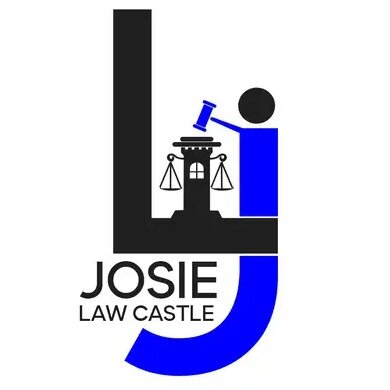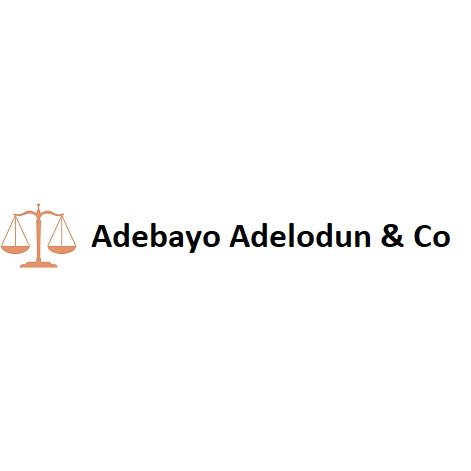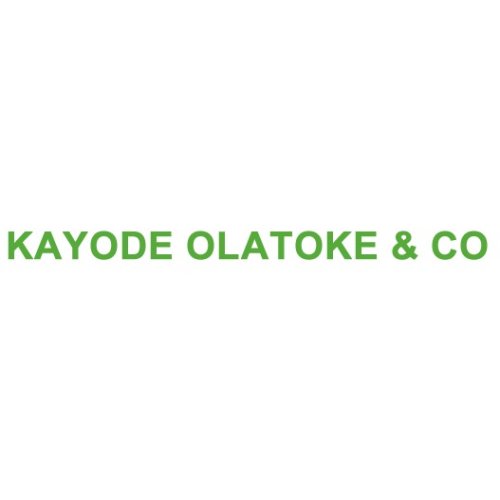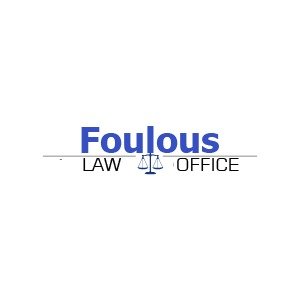Best Financial Services Regulation Lawyers in Ilorin
Share your needs with us, get contacted by law firms.
Free. Takes 2 min.
List of the best lawyers in Ilorin, Nigeria
About Financial Services Regulation Law in Ilorin, Nigeria
Financial Services Regulation refers to the framework of laws and guidelines which govern the practices, operations, and conduct of financial institutions in Nigeria, including banks, insurers, and investment firms. In Ilorin, as in the rest of Nigeria, these regulations are designed to maintain market confidence, protect consumers, and ensure the financial system’s stability and transparency. The primary regulatory body is the Central Bank of Nigeria (CBN), which works alongside other agencies like the Securities and Exchange Commission (SEC) and the National Insurance Commission (NAICOM) to enforce these regulations.
Why You May Need a Lawyer
Legal advice in Financial Services Regulation may be necessary in various situations, such as:
- Setting up a new financial service-based business and ensuring compliance with local regulations.
- Dealing with disputes involving financial service providers, such as unauthorized transactions or contract issues.
- Understanding how changes in regulations may affect one's financial decisions or obligations.
- Navigating complex transactions like mergers, acquisitions, or significant investments.
- Ensuring personal or business finances comply with anti-money laundering (AML) laws.
Local Laws Overview
In Ilorin, Financial Services are subject to various local and national laws designed to protect consumers and ensure a fair market. Key aspects include:
- Consumer Protection: Laws requiring transparency from financial providers, safeguarding consumers against unfair practices.
- Licensing Requirements: All financial institutions must be licensed by appropriate bodies like the CBN or NAICOM.
- Anti-Money Laundering (AML): Strict guidelines and reporting obligations to prevent illicit financial activities.
- Investment Regulations: Supervision by the SEC to protect investors and ensure fair trading practices.
- Credit Reporting: Banks and financial institutions must comply with credit information regulations.
Frequently Asked Questions
What is Financial Services Regulation?
Financial Services Regulation refers to the rules and laws financial institutions must follow to ensure the safety, fairness, and transparency of the financial system.
Who enforces these regulations in Ilorin?
The Central Bank of Nigeria (CBN) is the principal regulatory body, supported by others like the Securities and Exchange Commission (SEC) and the National Insurance Commission (NAICOM).
Do I need a license to offer financial services?
Yes, you must obtain a license from the relevant regulatory body, such as the CBN, to legally provide financial services.
How can I ensure my business complies with AML regulations?
Implement thorough customer verification processes, monitor transactions for suspicious activity, and maintain accurate records.
What should I do if I find unauthorized transactions in my account?
Report the issue to your bank immediately and consider seeking legal advice if the problem is not resolved promptly.
What are my rights as a financial consumer in Ilorin?
You have the right to fair treatment, transparent information, and adequate protection against fraud and other malpractices.
Can I represent myself in legal disputes with financial institutions?
While you can represent yourself, it's advisable to hire a lawyer specializing in financial regulation for guidance and better chances of success.
How are investment disputes resolved?
Investment disputes are typically addressed through mediation, arbitration, or litigation, with regulatory bodies playing an oversight role.
What happens if my financial service provider violates regulations?
You can report to the regulatory body, which can levy fines, sanctions, or revoke licenses against the provider.
How does regulatory change affect existing financial contracts?
Changes in regulation may alter contract terms; it’s important to review such changes with a lawyer to understand their impact.
Additional Resources
Here are some resources and organizations that can assist with Financial Services Regulation queries:
- The Central Bank of Nigeria (CBN)
- The Securities and Exchange Commission (SEC)
- The National Insurance Commission (NAICOM)
- The Nigerian Deposit Insurance Corporation (NDIC)
- The Financial Services Regulation Coordinating Committee (FSRCC)
- The Consumer Protection Council (CPC) of Nigeria
Next Steps
If you need legal assistance in Financial Services Regulation, consider the following steps:
- Consult with a Lawyer: Reach out to a lawyer specializing in financial law who can provide personalized advice and support.
- Gather Documentation: Collect all relevant documents related to your financial concerns or disputes.
- Regulatory Contact: Contact relevant regulatory bodies for guidance or to report issues.
- Stay Informed: Keep up-to-date with changes in financial regulation by following updates from relevant organizations and agencies.
Lawzana helps you find the best lawyers and law firms in Ilorin through a curated and pre-screened list of qualified legal professionals. Our platform offers rankings and detailed profiles of attorneys and law firms, allowing you to compare based on practice areas, including Financial Services Regulation, experience, and client feedback.
Each profile includes a description of the firm's areas of practice, client reviews, team members and partners, year of establishment, spoken languages, office locations, contact information, social media presence, and any published articles or resources. Most firms on our platform speak English and are experienced in both local and international legal matters.
Get a quote from top-rated law firms in Ilorin, Nigeria — quickly, securely, and without unnecessary hassle.
Disclaimer:
The information provided on this page is for general informational purposes only and does not constitute legal advice. While we strive to ensure the accuracy and relevance of the content, legal information may change over time, and interpretations of the law can vary. You should always consult with a qualified legal professional for advice specific to your situation.
We disclaim all liability for actions taken or not taken based on the content of this page. If you believe any information is incorrect or outdated, please contact us, and we will review and update it where appropriate.

















